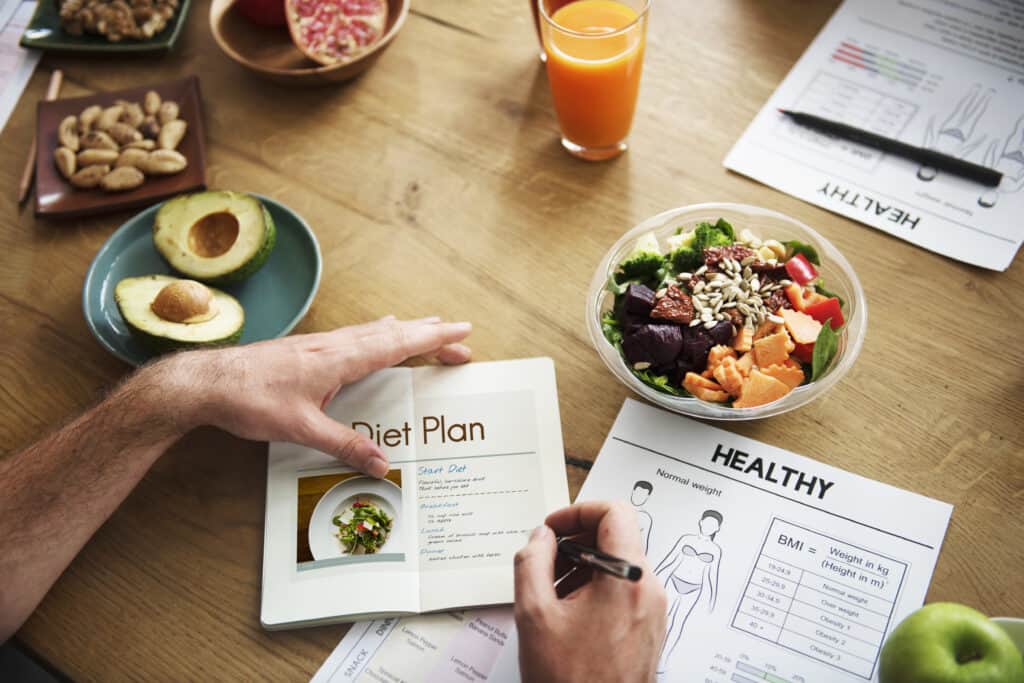Introduction
Scientific research continues to demonstrate the health benefits when added sugar and processed food are restricted in a typical diet. Many of us eat healthy during meal time. The issue seems to arise when it comes to snack time, grazing or late night eating. It is during these times that we jump ship eating more highly processed foods and added sugar.
The New York Times and Dr. Robert Lustig, MD teamed up recently offering an educational hour-long discussion on the “perils of sugar and processed foods” that can now be viewed on Youtube. If you think snacking during the pandemic has taken its toll on your waistline, you’re probably right! Dr. Robert Lustig, an endocrinologist and professor emeritus at the University of California, San Francisco, has a long history of trying to help prove this.
Dr. Lustig is a best-selling author of “Fat Chance: Beating the Odds Against Sugar, Processed Food, Obesity and Disease.” One of his lectures on the health risks of added sugar has more than 10 million views currently on YouTube. Earlier his month he joined Tara Parker-Pope, founding editor of the New York Times Well column. They looked to answer questions and share advice on how we can improve our overall health by simply cutting back on sugar and processed foods. You can listen to his latest lecture here.
Interesting Facts Regarding Sugar and Processed Food
One of the more interesting take aways from his talk was his definition of processed food from a nutrition standpoint. He stated that in order for something to be considered a processed food, it has too little of three and too much of eight of the following items.
Too Little of
- fiber
- omega-3
- micronutrients
Too Much of
- branch-chain amino acids
- salt
- nitrates
- omega-6 fatty acids
- food dyes
- food additives
- emulsifiers
- added sugar
It can be a daunting task to get this under control when someone is focusing on trying to eat better. The packaged foods in a typical grocery store contain 74 percent added sugar. This is one reason why a nutritionist always says to shop only the outside or periphery of the store, do not go down the middle isles.
Americans Eat Too Much Sugar and Processed Food
The average American consumes too much added sugar on a daily basis. Americans currently eat about 76 pounds of different forms of sugars every year. Even though we have seen a 15 percent decrease in added sugar consumption since 1999, according to government data, the typical person still eats about 94 grams (or 375 calories) on a daily basis (U.S. Department of Agriculture).
This is How Much Sugar You Should be Eating
Some publications have reported added sugar should make up less than 10 percent of our total daily caloric intake while other reports say that’s wrong and it should be more like 5 percent – which I tend to agree with. In that line of thinking, there may be value in putting ourselves on what I like to call an added sugar budget. An average meal can easily turn into dessert. A good, healthy goal for men is to consume no more than 150 calories a day (38 grams) of added sugar. Women should have a goal of 100 calories a day (25 grams). To clarify, you should limit your added sugars not natural sugars.

What Types of Food Contain Added Sugar?
Added sugar is hidden in more than 60 different forms and it’s in just about everything we eat, from tomato paste, to fruit-based yogurt to (sadly) sports drinks like Gatorade (i.e. HFCS). According Dr. Lustig, “approximately 80 percent of the 6,000,000 consumer packaged foods in the United States have added caloric sweeteners.”Your best bet is to avoid it altogether if it comes in a bag, a box, out of a can, or from a carton.
The first step is start reading all food labels. Natural sugars, like those that come from fruit, contain fructose, but are packed with plenty of fiber, have an abundance of nutrients and contain lots of water and as a result gets released slowly into the bloodstream. In turn, blood sugar levels do not spike as they would with high sugar content foods. The net result, your body avoids a big release of insulin from the pancreas. When this happens multiple times throughout the day and over time, the body becomes more sensitive to storing body fat.
What the Research Shows
There is an abundance of scientific research published each year showing too much added sugar in our diet can be toxic to our health.
One study showed subjects who got 17-21 percent of their calories from added sugar had a 38 percent risk of dying from cardiovascular disease compared to those who consumed 8 percent of their calories from added sugar. The risk was more than double for those who consumed 21 percent or more of their calories from added sugar.
D’Adamo, 2015
Two large European studies published by the British Medical Journal found positive associations between consumption of highly processed foods and risk of cardiovascular disease and death. Results showed that higher consumption of ultra-processed foods (more than 4 servings per day) was associated with a 62 percent increased risk of all cause mortality compared with lower consumption (less than 2 servings per day). For each additional daily serving of ultra-processed food, mortality risk relatively increased by 18 percent.
BMJ, 2019
Adopt a Healthy Eating Game Plan
To see big gains in the gym, it’s important that you train smart, eat healthy by decreasing sugar and processed food, and get plenty of sleep. Most people understand this intuitively but never develop a game plan to eat healthy. Try to follow these four easy steps to make the process easier and hopefully in turn build a healthy habit.
- Eat more fiber in your diet
- Decrease added sugar
- Eat fewer unhealthy fats
- Reduce salt intake
Use some of this information coupled with a regular strength training program if you want a recipe for success. Checkout the Jefit app to help plan & track your workouts.
Stay Strong Together
Jefit app was named best app for 2020 and 2021 by PC Magazine, Men’s Health, The Manual and the Greatist. The app comes equipped with a customizable workout planner and training log. The app has ability to track data, offer audio cues, and features to share workouts with friends. Take advantage of Jefit’s exercise database for your strength workouts. Visit our members-only Facebook group. Connect with like-minded people, share tips, and advice to help get closer to reaching your fitness goals. Try one of the new interval-based workouts and add it to your weekly training schedule. Stay strong with Jefit as you live your sustainable fitness lifestyle.
Reference
Srour, B et al., Ultra-processed food intake and risk of cardiovascular disease: prospective cohort study. BMJ 2019; 365:1451. https://doi.org/10.1136/bmj.l1451
- Optimal Recovery Time for Strength Training - January 21, 2026
- Train Smarter With MED: Minimum Effective Dose Strength - January 14, 2026
- Auto-Regulated Strength Training: A Smart Way to Lift - January 7, 2026
